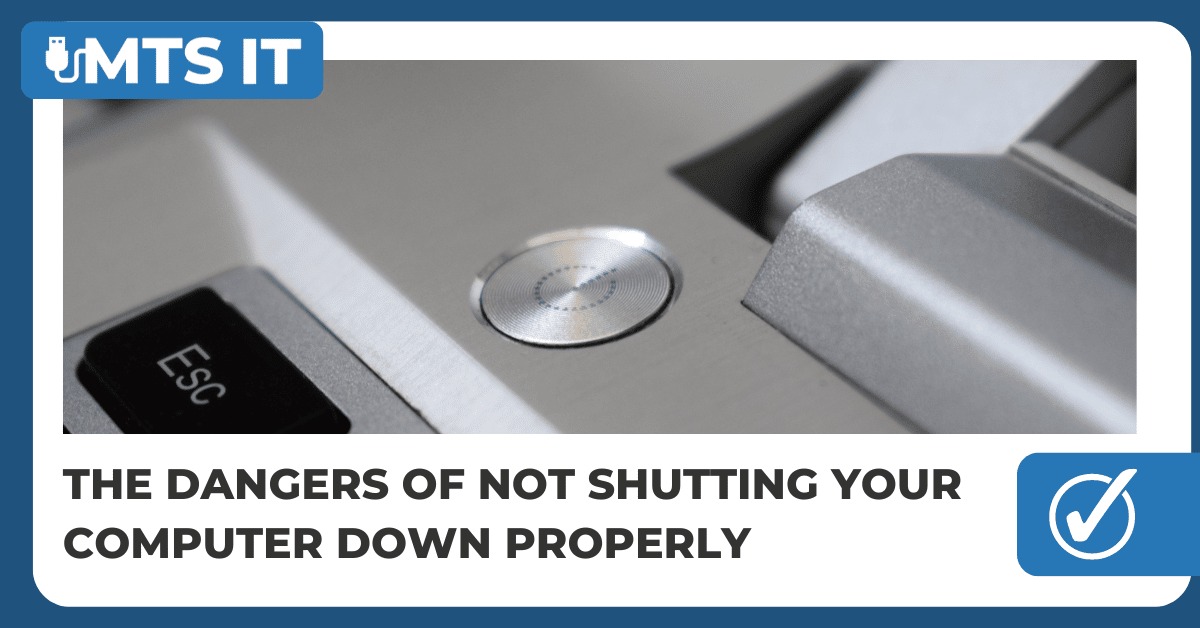Turning something off sounds simple. Switch off the lights when not in use, turn off the ignition switch on your parked car, or press a button on your remote control to turn off your TV. so why isn’t it that simple to turn off your computer?
Turning off your PC by unplugging it or tapping the power switch off, albeit easy, is never a good idea! Doing so can lead to data loss or corruption, and potentially cause an electrical short. Power spikes can cause damage to your power supply, or to the computer itself, so it’s best to avoid this at all costs.
Shutting down your PC properly isn’t all that hard. You go to the “Start†menu, click “Power,†and choose “Shut down,†or you can simply hit the power button on your PC. In the past, turning off your PC by pressing the power button was a bad choice. Nowadays, modern operating systems are smart enough to recognize a power button press and apply the same process as using the built-in “Shut down†menu.
Using either method does not usually shut down your PC right away. It makes some noises, and the screen tells you it’s shutting down, but it seems to take its sweet time doing so. Sometimes, it even does those gosh-darned updates! And you start to wonder why you can’t just unplug it or turn off the little switch by the plug to get it over with.
What Your PC Is Actually Doing
Your PC is working patiently to ensure that all of your open programs shut down in an orderly manner, and so should you. Sometimes, these applications are still doing work and require the PC to tell them to shut down if you have not already closed them. Other times, the operating system is writing changes to that mysterious “system registry.†Trust me, you want that to complete successfully!
Let’s use the analogy of a messy desk full of work. Your computer has done work ALL DAY. Now, at the end of the day, it has to put away all the files it used throughout the day, take the coffee cup to the dishwasher, throw away that napkin from lunch on the desk, and straighten up the pens used during the day.
In other words, your PC is diligently doing all the work to clean up from the day so that it is optimized and ready to go when it’s turned on again.
Suppose you elect to be impatient and pull the plug or use that switch on the power supply. In that case, you could damage files on the hard drive required for the smooth operation of your computer or potentially damage files you had open in your Microsoft Office application. While modern hard drives and modern file systems have safeguards called “journaling†that can help to prevent data loss, it’s better to allow the computer to shut down properly to ensure that all of your files are safe.
Have you ever shut your computer down by pulling the plug (accidentally or not), then came back to see the picture above after turning your computer back on?
This happens because your computer’s file system needs to check itself to verify no files are damaged. After all, it KNOWS that “the desk is still messy.†This will also be helpful so that, in case there are problems, it can try and fix them or at least inform you about them.
So at the end of the day, ESPECIALLY if you hate running those hated Windows Updates, know that it pays to be patient and to power down your PC properly. Take inspiration from Joyce Meyer who said, “Patience is not simply the ability to wait; it’s how we behave while we’re waiting.â€
Do you have other questions about the technology at your company? MTS IT is here to help.



